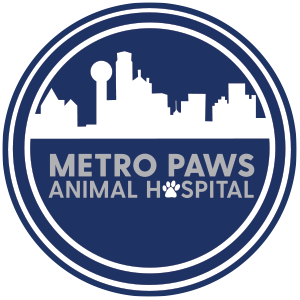By: Caitlin Spillers, DVM
For some dogs and cats, the vet clinic can be a place that induces anxiety leading them to react in a variety of unpredictable ways that are stressful for not only the animal, but also their owner. If left unaddressed, this stress may lead to some owners avoiding taking their pets to the vet, which may have negative effects on their health. Fear free is the idea in veterinary medicine that by reducing anxiety and stress in canine and feline patients, we can make veterinary visits more enjoyable for both our patients and their owners, thereby providing excellent care to our patients.
Many factors can play a role in initiating a stress response in patients at a veterinary clinic. These factors can include new sounds and smells, other patients, and new people (including the veterinary staff). There are multiple techniques that can be used to help relieve stress in our patients and will be discussed below.
Fear Free in Dogs
Positive reinforcement, either from the veterinary staff or owners of the animal, different restraint techniques, and sometimes even anxiety-reducing medications are all techniques that can be used to help reduce stress in canine patients. For some patients, pre-medications are recommended prior to veterinary visits to help reduce stress and anxiety. In your pet’s eyes, the vet is a strange place filled with strange people who may do things they aren’t used to – like administer injections or draw blood samples. Your veterinarian may recommend “happy visits” to help your dog understand the vet isn’t always a scary place! Happy visits can help desensitize a scared animal to the hospital by providing positive experiences for them. In these visits, the owner simply walks the pet around the hospital, who gets to receive rewards from their owners as well as the veterinary staff- no treatment or exams are performed during these visits! The goal here is for the dog to associate the vet clinic with a positive experience and, over time, become less stressed during their visits.
Fear Free in Cats
For many cats, stress begins the moment they leave the comfort of their home, before they even arrive at the clinic. Setting out their carrier the day before the appointment can help them get used to the carrier before they need to be transported to their appointment. Placing a blanket or towel with a scent that they are comfortable with in the carrier is a great start can also help provide them a comfortable place to rest in. Pheromone products can be used to help calm cats. Feliway is a pheromone product that comes in a spray form, but also in a diffuser that can make it ubiquitous in the room. Your veterinarian may elect to use Feliway as a technique to help reduce stress for your cat at the vet clinic! Soft blankets and towels can be laid over the exam table to create a soft, warm place for your pet to receive medical care. Restraint techniques that do not involve scruffing can also be utilized to safely restrain your cat while also allowing for veterinary care. These restraint techniques commonly include e-collars and lots of blankets or towels to wrap your cat in! For some very anxious cats, pre-medications may be indicated prior to veterinary visits to help reduce anxiety.
Reducing stress and anxiety in veterinary patients allows for more thorough physical exams of patients and happier pets. Performing thorough exams allows your veterinarian to catch medical problems sooner and therefore provides your companion with the best medical care possible! There are lots of options to make your pets’ veterinary visit less stressful! Please consult with your veterinarian to see what options could be helpful for your dog or cat.
